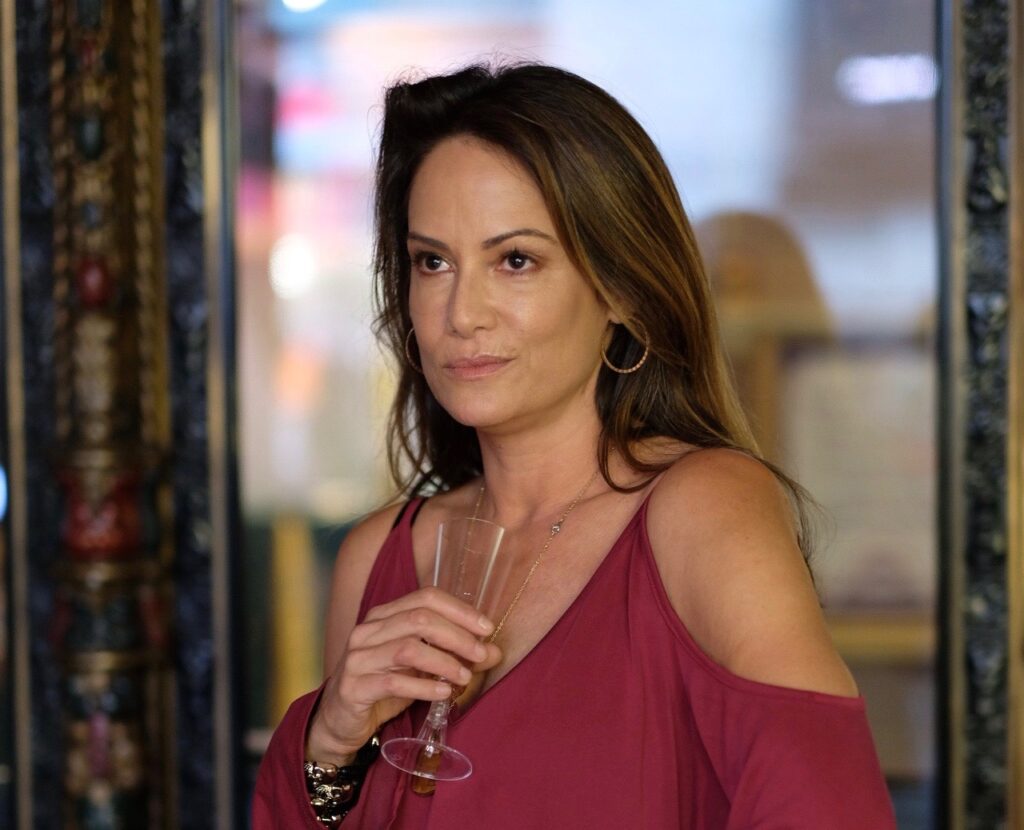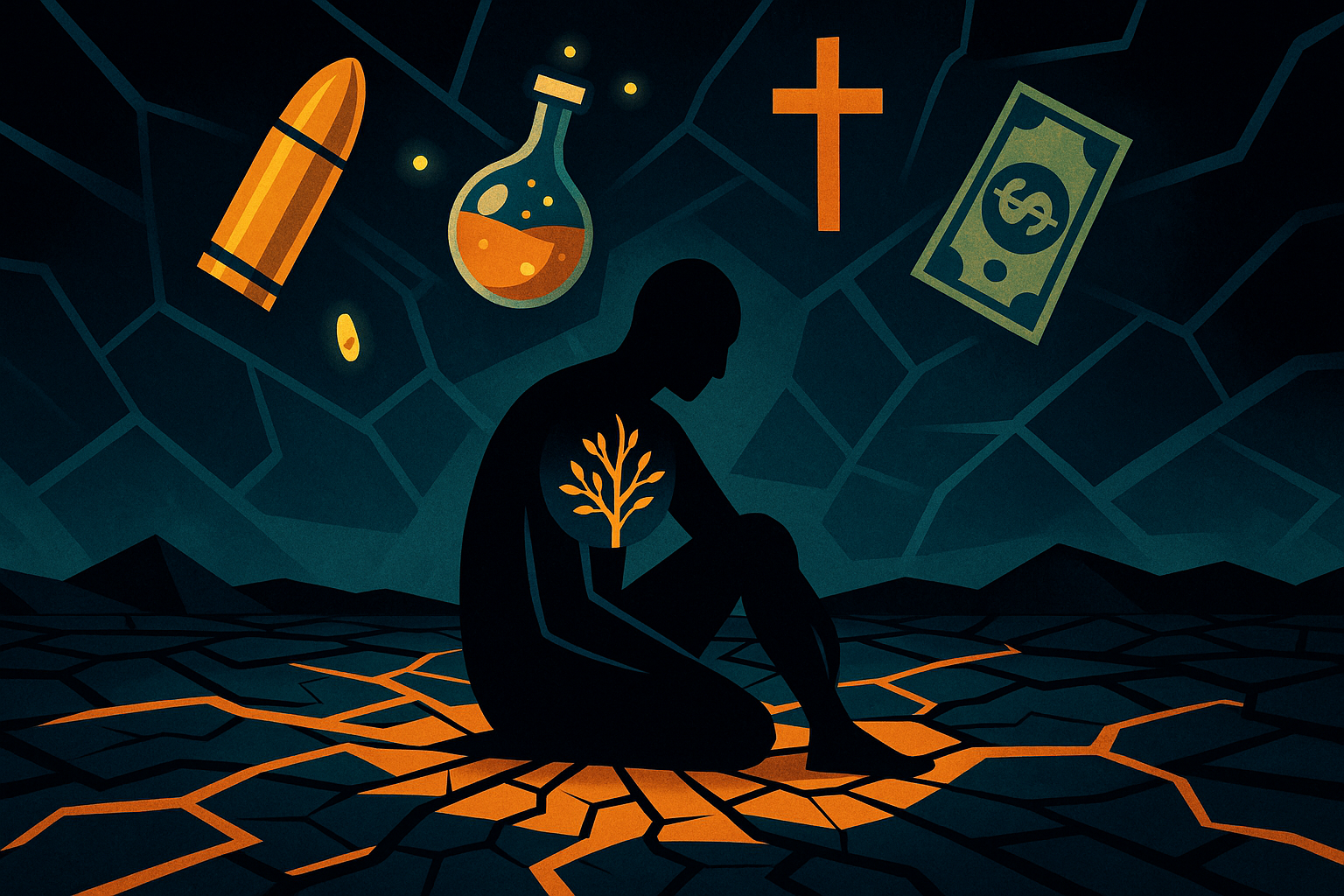HarperCollins published Party Girl in 2007. In 2018, the movie rights were acquired and the audio book was released. This excerpt is from the middle of the book, right after the main character, Amelia, overdoses and comes to in the hospital.
***
Later that day, Mom and Dad show up with a man who seems to be about Mom’s height (five feet) and introduces himself as Dr. Ronald Rand. By this time, not only am I fully conscious and moving around the room, but I’ve also been briefed on the recent turn of events, and they’re neither pretty nor surprising. Essentially, after I passed out for the final time by the dumpsters, one of the valet parkers called the paramedics and they came and brought me here to Cedars, where I had a file, thanks to my Cedars gyno. When Mom got the your-daughter-O.D.’d call, she got in touch with Dad and this height-challenged shrink, and brought the two of them down from San Francisco to help save me.
“Mom, can I talk to you alone, please?” I ask as soon as the three of them turn up in my room. I feel overwhelmed by the triumvirate and a little like I’m being ganged up on as I fall back into bed and pull the covers around me. Mom looks more nervous than I’ve ever seen her and she seems to be looking at me quizzically, like she’s trying to reconcile the concept she has of “daughter” with the one she has for “girl who overdosed on drugs.” She glances at Dad and Dr. Rand, and says, “I think I’d like Ronald to stay.”
So Dad leaves the room and I sit up in bed. Dr. Rand clears his throat.
“Why don’t I explain why I’m here,” he says and I nod. “Well, my work typically involves helping parents whose kids have joined certain religious groups, or cults.”
“You’re a deprogrammer?” I ask. This guy I met at a party once told me that his parents sent him to one after he decided he didn’t want to be a Scientologist anymore.
“Technically, I’m a behavioral psychologist,” says Dr. Ronald Rand, “but I have been quite successful at reuniting children who have been lost with their parents.”
“But I didn’t join a cult,” I say. “I’d never join a cult. I just had a bad night because I took too many drugs.”
I can’t look at Mom when I say the word “drugs,” even though I know that she knows I do them. A few years ago, I met my mom and stepdad in Paris when they were doing a house trade with a Parisian family at Christmas for a month, and I managed to infiltrate the sleazy underbelly of Parisian party life rather easily. The coke in Paris was so pure that I regularly returned home from a night out just as my mom and stepdad were going out sightseeing for the day. But we sort of operated under the “don’t ask, don’t tell” policy.
Dr. Rand looks thrilled that he’s been able to extract the word “drugs” from me.
“Drugs!” he shrieks excitedly. “Yes, drugs!” He glances at my mom like he thinks she should be handing him a medal and then gazes at me. “I understand you like to do a toot now and then.”
“A toot?” I ask. Who the hell was this Dr. Ronald Rand, and why on earth had Mom thought he might be the right person to talk to me about drugs? “Is that, like, a line?”
“A toot, a line, powder,” he says, trying to appear casually hip.
“Look,” I say, glancing down. “I like doing coke; I like it a lot.” I hear Mom gasp, even though she’d told me years ago that our former handyman had given her coke once and she’d spent the entire night vacuuming every rug in the house. As soon as the confession is out of my mouth, though, I feel oddly relieved. “But still, what happened last night was a mistake. I thought I was doing coke, but it turned out to be something else.”
Dr. Rand nods compassionately and for the first time since I set eyes on him, I sort of like him. He sits down on my hospital bed and gazes at me kindly. “Do you want to stop doing coke?” he asks.
I know what he’s really asking me is if I want to get sober but he’s just too much of a wuss to phrase it like that. A couple of the guys at my high school got sober when they were busted smoking pot at one of their soccer games, and I’ve known a few sober people over the years, but the truth is, I haven’t ever understood how those folks worked. They probably go to, like, the theater all the time or sew group quilts or do something to replace going to parties and socializing, but I just can’t see myself as Suzy Sober Girl.
“I can’t imagine what I’d do for fun if I was sober,” I say.”My guess is that you’d find all kinds of new ways to have fun,” Dr. Rand says.
“But I don’t want new ways. I like the old ways just fine,” I say as I fall back into my pillows.
“Amelia,” Dr. Rand says, finally sounding firm, “with all due respect, I don’t think those ‘old ways’ are working for you anymore.”
At first, I want to lash out and attack him, but instead I just lie there and think about what he’s saying. I consider how horribly jittery I’ve been feeling since I started doing coke all the time, those suicidal feelings that plague me the day after I do it and the day after that—feelings that can only be dulled with more coke—and all the paranoia. I realize that I can’t imagine my life with coke and I can’t imagine it without. And I’m not going to kill myself, so what are my options? Being sober would surely suck, I decide, but it might be better than dying. Armed with that conclusion, I nod. Dr. Rand pats my mom, who now looks a little teary, on the back.
“We’ve picked out a local rehab for you,” he says. “Why don’t I bring your dad back in?”
“Whoa,” I say, more alarmed by the mention of Dad than I am by the thought of rehab. “My dad just doesn’t understand me,” I say. “He scares me and he makes me feel uncomfortable and guilty and he’s always criticizing and he makes me feel bad about money, and—”
“He also loves you very much,” says Dr. Rand. “Did you ever think that he only says what he says and does what he does out of love and wanting you to have and be the best you can?”
I don’t say anything.
“Do this,” Dr. Rand says. “Picture a movie theater—one of those multiplexes with ten different movies playing at the same time. Now picture you and your dad, walking in the front door together. But you go into one theater and your dad goes into another. You leave at the same time and maybe your movie was terrible but your dad just loved the one he saw and you can’t seem to understand how he felt that way because you thought he was in the same theater you were, watching the piece of doodoo you’d seen. Why don’t you look at what you and your dad have experienced that way—like you were two people going through the same thing but watching completely different movies?”
Maybe my drug-addled brain is exhausted or I’m just feeling too weak to fight much longer, but something about Dr. Rand’s ridiculous movie theater analogy works for me. It occurs to me that my dad isn’t always trying to be awful but just doesn’t know exactly how to handle me. I give Dr. Rand a half-smile.
“Your dad would like to pay for rehab,” continues Dr. Rand. “And, after considering several options, he thinks the best place for you would be Pledges.”
And that’s where he gets me. Everyone knows that Pledges is the Four Seasons of rehabs and anyone who’s even casually perused Absolutely Fabulous or any of the other weekly magazines is familiar with the fact that every celebrity with a well-publicized drug problem has gone there. I’ve seen pictures of its multiple pools, exercise rooms, and even horse stables. It would probably be, I think, the ideal place to get a little pampering while they teach me how to stop wanting to do coke.
Dad steps in the room, smiling, and I suddenly feel incredibly grateful for both him and Mom—the fact that they flew down here and still love me, despite what a fuck-up I am.
Mom, who’s been silent for probably longer than she has in her entire life, asks, “Now, do you have anything you need taken care of? The cats—why don’t I take them until you’re back on your feet again?”
I think of my apartment and its piles of clothing and gray paint everywhere. I nod. “My place is a disaster.”
Mom nods and says, “After this is all over, maybe you’ll want to move back home?” This is always Mom’s angle. I think she’d be thrilled if I still lived in my old bedroom. But for once, this doesn’t bug me; I feel oddly grateful for the fact that she still wants me near her, even though I have no intention of moving back north.
Dad says, “I don’t want you worrying about money for the time being—just concentrate on getting well.”
And then Mom and Dad lean in to hug me. And, I kid you not, Dr. Ronald Rand throws one arm around Mom, one arm around Dad, and presses his face into our hug like we’re all one big, happy family.
To get the audio version of Party Girl (for free for new Audible members), click here



